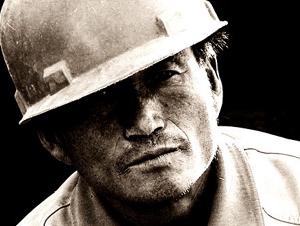Status of the American worker declines
(Image: saad.Akhtar / Flickr)
2008 was not a good year for Labor Day. Employers have been cutting jobs for months, leading to a high unemployment rate. In certain sectors, like construction, the picture is especially bleak. Times are tough even for those who have jobs. The threat of the sagging economy is enough to convince that they should put up with forced overtime, working off the clock, unsafe conditions, and meager health insurance.
When he began poking around America’s workplaces as the labor correspondent for the "New York Times," Steven Greenhouse says he was taken aback by what he found — "squalid treatment, humbling indignities, relentless penny pinching." Greenhouse examines the decline in the status and treatment of American workers in his book, "The Big Squeeze." He’s been on the labor beat at the "Times" for about 13 years, and he has already seen feast and famine.
"In the late 90s, the American economy was doing very well. There was the high tech boom, unemployment had fallen to its lowest level in 30 years, wages were rising very nicely for low income, middle class, and high-income workers. So, it was really a very good period. After 2000, after the high-tech bubble had burst after the recession, I really saw this horrible squeeze developing, and it seemed to get worse and worse," says Greenhouse.
Bob Edwards Weekend" is a two-hour interview showcase, in which celebrated host Bob Edwards highlights the life and work of interesting people, from newsmakers, historians, and authors to artists, actors, and regular folks too. The show is produced by XM Satellite Radio and distributed nationwide by PRI.
PRI’s coverage of economic security is supported by the Rockefeller Foundation and its Campaign for American Workders.
The article you just read is free because dedicated readers and listeners like you chose to support our nonprofit newsroom. Our team works tirelessly to ensure you hear the latest in international, human-centered reporting every weekday. But our work would not be possible without you. We need your help.
Make a gift today to help us reach our $25,000 goal and keep The World going strong. Every gift will get us one step closer.
